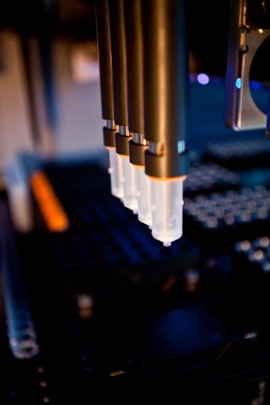
The fully-automated sample lysis solution is awaiting approval by Netherlands Forensic Institute (NFI), Nevada
According to the company, the manual lysis step is not only time-consuming but also represents a potential gap in workflow and traceability and creates possibilities for contamination and errors.
The NFI selected Hamilton Robotics through a tender process designed to identify an automation partner.
Once approved, Hamilton plans to commercialise the system, named the MICROLAB AutoLys STAR, later this year.
The NFI, a government-owned forensic lab, performs the vast majority of forensic DNA casework in the Netherlands, including providing second opinions and analyses for cold cases.
'We had been doing the lysis step on the severe crime samples by hand to meet quality and yield demands,' explained Bas de Jong, MSc, project manager at the department of human biological traces.
'Initial validation work with the Hamilton AutoLys STAR is producing results and quality that are comparable to our manual processes.
'In addition to reducing error possibilities and contamination risk, the automated system can run overnight, improving overall lab throughput.' The NFI will also be working with Hamilton to validate an automated platform for DNA purification after lysis using magnetic beads.
In addition to the proprietary AutoLys Tube, Hamilton has developed a special channel, compatible with all MICROLAB STAR line instruments, that handles the tubes through all the steps of the sample lysis process: capping/decapping, holding lids while the pipetting channels add lysis buffer to the samples, transferring tubes to incubation, lifting and locking an inner tube in spin position, extracting the tube after centrifugation and transferring the clear lysate into a fresh tube.




